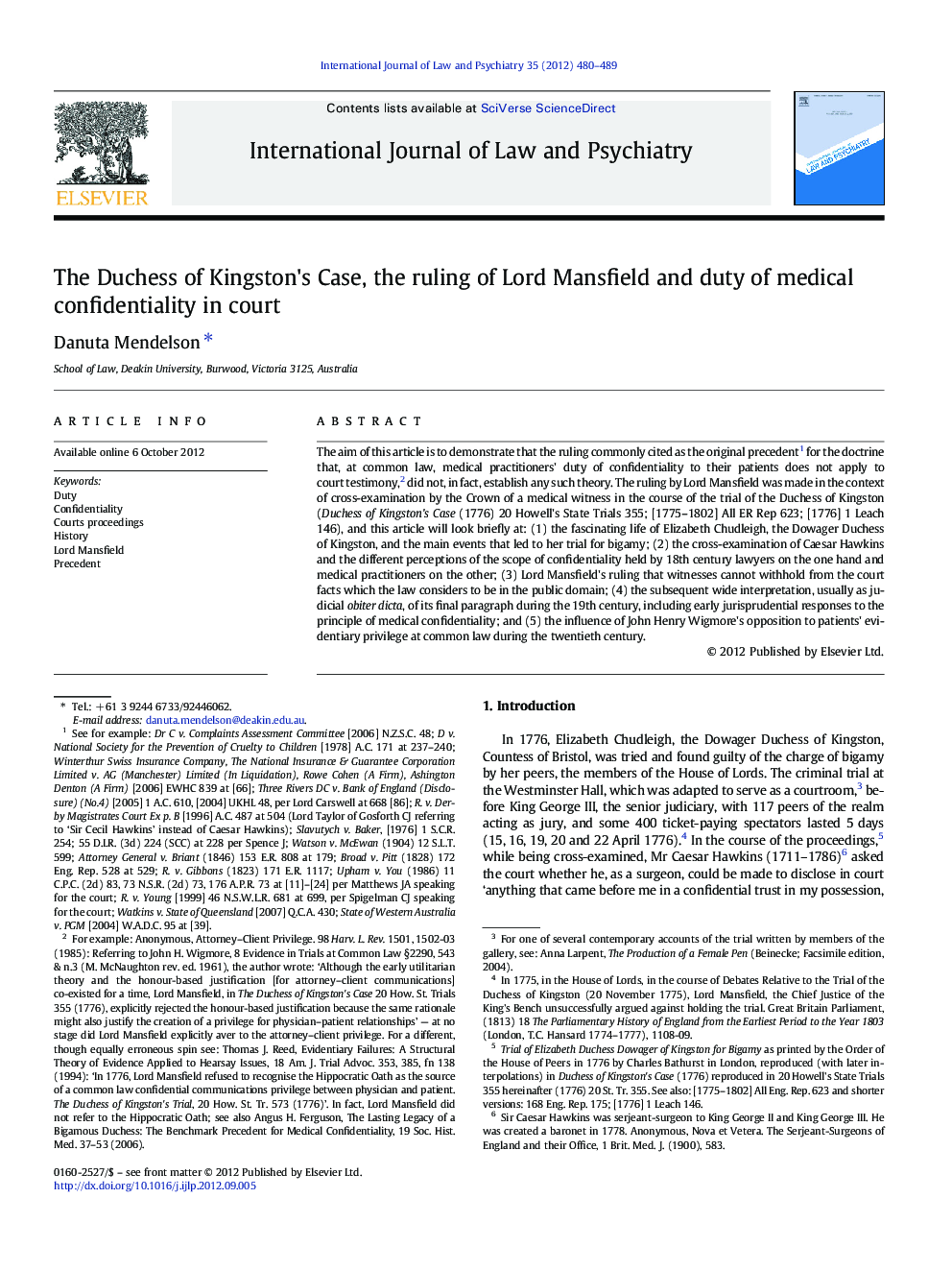| Article ID | Journal | Published Year | Pages | File Type |
|---|---|---|---|---|
| 100950 | International Journal of Law and Psychiatry | 2012 | 10 Pages |
The aim of this article is to demonstrate that the ruling commonly cited as the original precedent1 for the doctrine that, at common law, medical practitioners' duty of confidentiality to their patients does not apply to court testimony,2 did not, in fact, establish any such theory. The ruling by Lord Mansfield was made in the context of cross-examination by the Crown of a medical witness in the course of the trial of the Duchess of Kingston (Duchess of Kingston's Case (1776) 20 Howell's State Trials 355; [1775–1802] All ER Rep 623; [1776] 1 Leach 146), and this article will look briefly at: (1) the fascinating life of Elizabeth Chudleigh, the Dowager Duchess of Kingston, and the main events that led to her trial for bigamy; (2) the cross-examination of Caesar Hawkins and the different perceptions of the scope of confidentiality held by 18th century lawyers on the one hand and medical practitioners on the other; (3) Lord Mansfield's ruling that witnesses cannot withhold from the court facts which the law considers to be in the public domain; (4) the subsequent wide interpretation, usually as judicial obiter dicta, of its final paragraph during the 19th century, including early jurisprudential responses to the principle of medical confidentiality; and (5) the influence of John Henry Wigmore's opposition to patients' evidentiary privilege at common law during the twentieth century.
